For once it did not start as always, ie, with a fight. Usually it is me jumping and excited about our wanderlusts that turns into cribbing and whining till my husband makes it his mission too put off my pleadings that I need to throw a tantrum with wails and threats as a final resort. It is only then that he would give in. That is the way he is, my husband, Gautam. I recently got married to him after like a year long courtship surprising enough I still am trying to figure him out. Coming back to my blog, this time it was different, he himself asked me out (much to my surprise). He had found out some gang that goes star-gazing that is a trip (through a telescope) that takes you around, in and out of galaxies, clusters and constellations of stars, planets, and all kinds of celestial objects you would have read about in those science books way back in schools. It had been organised in a neighbouring village called ASANGAON.
So that is how it started. He found out a site calledMumbaihikers.com found this program and sent me the url for review. Being a true arian I was in it even before I had skimmed through the whole page. I called up the contact number and fixed our place for the coming Saturday evening.
Saturday came, the slow and weary day for my excited nerves somehow passed and the sun started going down; we packed an overnight bag and set out. We missed the direct train (as was mentioned on the site), took a connecting train from Thane to Asangaon. The train much to my disgust was jam packed, and I even managed to pick up small tiff with a man for getting into the gents bogie instead of the women's; how could he complain about such a thing when I was with my husband??:p Nevertheless its always refreshing to get your throat cleared and hearing your shrill high-pitched voice piercing the usually humdrum-mick ambiance of a Mumbai local.
We reached Asangaon station after a travel of about 1.15 hours. Got down and were trying to coax a rickshaw to take us to the event site, when we saw another couple packed and geared much like us, looking as unsure about their surroundings. As it was they too had come for the same star-gazing event. They wanted to stop for a while and have some refreshments and invited us too, but no, nothing could have convinced my excited soul, so I dragged Gautam to find a rickshaw leaving them behind to their mundane tea thirsts.
We reached the place, some God forsaken college in some god forsaken little village. We were just wandering aimlessly trying to find our way when we saw a small stream flowing nearby. We made our way to the bank and sat down for a smoke. We got up and walked a little while reading an direction board and made the rest of the way to the college. There was a small group of people mostly youngsters clustered around a whitish looking machine. A little closer and it revealed itself ;a telescope, “The SkyWatcher”, 150mm aperture. There were actually two of them, the other was for spotting called “The Nikon Spotting Telescope”. We were met by a Dr. Ajay, he was the person I had contacted for the bookings. It was pretty dark and I couldn’t much make out the faces or the ages of the people in the group. Okay so now we officially start the expedition; Ajay and his mate a guy named Jasraj, were trying to focus the telescope on a star near the horizon. We did have the background knowledge about the most common planets and stars that one can usually see in the night sky routinely. So the star that they were viewing was actually a planet, it was the Jupiter and through the telescope we could make out the yellowish globe with a red band across it. Initially I had some difficulty in making out what I was supposed to see. As might be the case with all first timers using the telescope. I thought I would see something like the pictures off the Jupiter that I had seen in my books. A large pink globe with the huge red spot in the centre. But to my surprise it just showed as a small rounded punched paper bit that was yellowish in colour and had a red band going through the centre. I could hardly manage to see it , while Gautam boasted of siting even 2 or 3 moons around the already tiny speck (may he was actually right but who can know, what one sees through the telescope is exclusive to his eyes only).
After it sank down the horizon, Ajay started us on a romantic story steadily weaving in the various constellations; Orion, that depicts a hunter accompanied by his faithful dog (the constellation CANNIS MAJOR), interested in a beautiful maiden that is depicted by the sixth star of the open 7-star cluster the Pleiades, or Seven Sisters (Messier object 45 or M45), located in the constellation of Taurus.
You must be wondering what this M-45 means as I was when Ajay and the other veterans first mentioned it. These are the same M listings that we see when we point the android application google sky maps on the sky and see a host of M listings strewn across the screen. These are actually a set of astronomical objects first listed by Frenchastronomer Charles Messier in 1771. Messier was a comethunter, and was frustrated by objects which resembled but were not comets, so he compiled a list of them, to avoid wasting time on them. He made a list of about 110 objects which have come to be called as the Messier abjects or simply M-objects.The highlight of our event was to locate and observe as many M objects as we could in that one night.
Sirius is the brightest star in this constellation, and in the night-time sky. The colloquiy "Dog Star" was coined by the ancient Greeks who thought the "dog days" of summer were a curse by the GOD SIRIUS and thus feared it and tried appeasing Him by offerings. Such was the might of Sirius.
Orion has three Messier object, several double stars, one dim planetary nebula, and a couple of open clusters. M42,The Great Nebula is a nebula in this constellation. This would be the first nebula I have ever seen in realty outside of the text-books.
Next to this star cluster is thee star ALDEBARAN which is actually a red giant. A red giant is the last stage of a star's life after which it meets its destined end depending on its size. It might end up as a supernova, black hole or white dwarf. This star plays the role of the eye of the bull that is the constellation TAURUS which protects the seven sisters and looks at the hunter with an eye that is red with wrath.
There is a small constellation called as LEPUS the Rabbit that lies directly south of the hunter, Orion.
It was the Greeks who named this constellation, envisioning the hare eluding Orion’s hunting dog, Canis Major, as the groups fly across the sky to the west of them. Just as we got busy trying to imagine the story developing through the stone age man's eye Ajay called our attention to yet another celestial splendour of the night that was about to be drowned below the horizon ; the crescent of the VENUS. Just as he said this all around us there were shouts of exclamations and a frenzy ensued for a position at the eyepiece. He said the VENUS had been very bright all through most part of the year and that it was very rare that a planet its phase to us. I went and stood first in the line at the telescope eagerly awaiting my turn to witness the beautiful crescent. I covered one eye in the palm of my hand keeping it open at the same time and looked into the eye-piece, what i saw in it blew my breath away. A thin white sliver shining so bright filling the whole eye piece with intense beauty and a celestial halo. It was just as the beautiful Eid moon would have been only tinier and brighter that made it even more pretty.
After this we spotted the 7 stars of the “BIG Dipper” and also the rest of the fainter stars of this constellation. Next Ajay got our focus shifted on a twin star pair Mizar and its fainter companion star ALCOR. You will spot Mizar first as the middle star of the big dipper's handle.Look closely, you will see ALCOR right next to MIZAR. This pair of stars in the BIG Dipper handle is famously called as the “the horse and rider”. Mizar is really 4 stars and ALCOR is really 2 stars which are held together by their combined gravitational forces and when you look at all of them at one time you can imagine the rider riding on a horse.”Oh before I forget to mention, there was one very interesting advantage to this star gazing session. Remember the tea-guzzling couple I had mentioned before, the husband called Chetan had an IPAD on which he had the application called the STAR WALK opened.
It gave a very advantageous viewing to the whole episode. The application showed all the information there was to be known about the night sky. Even traced out the outline of the constellations which is not possible using the google sky map. So when I say we spotted the rest of the GREAT BEAR, it was actually seeing it on the IPAD. Thus the "question mark" or "spoon" of the GREAT BEAR is an ASTERISM, ie a small part of the bigger constellation that is easily seen by the naked eye and becomes associated with the bigger version of the same.
I think from here on I need to follow a more systematic approach otherwise this blog is going to be one big hotch potch. It so happens that all the celestial bodies are associated with some constellation or the other. It hence makes sense if I proceed with taking up each constellation and mentioning all the wonderful objects we kept seeing as a part of them ie the ASTERISMS. So from hereon this blog will follow a constellation order. Since I had already begun mentioning the BIG Dipper I shall continue with it. It has many interesting objects as part of it. I already told about the ALCOR MIZAR twin stars, then there are 2 galaxies to be seen. The first and the more interesting of the two is the CIGAR GALAXY named so for the simple reason that it resembles one in shape. It was listed as M82.
And there is Messier 81 (also known as NGC 3031 or Bode's Galaxy) is a spiral galaxy about 12 million light-years away. For me seeing a galaxy was like so surprising. I had never imagined they could be seen from the earth. I had on a number of instances seen the MILKY WAY as a hazy elongated cloud embellished with twinkling stars but seeing these galaxies was a very different experience. For one they were quite distant so you see them as very minute figures and you can make out the exact shape of the whole galaxy.
There is another interesting fact related to the BIG DIPPER, no actually its its smaller twin the URSA MINOR, about the so famous POLE STAR. It is the end-star in the tail of Ursa Minor.It has long been an important star to sailors and caravans of old, winding their way over the desert by night, and others who navigated their way by stars, seen in the sky almost stationary pointing to the North. It is actually a star called Polaris.To our eyes, Polaris appears to be motionless at the centre of the field of circumpolar stars. All the other stars appear to circle about Polaris. There is really nothing so special about it. That particular star happens to be more or less right in line with the axis the earth spins on, so it appears to not move. And the earth doesn't even spin perfectly, it wobbles a bit. So sometimes Polaris is the north star and then sometimes Vega the brightest star in Lyra is, or Thuban, or Alpha Cephei. But sometimes means once every 26,000 years, so it really doesn't make a difference to us. Forty-one thousand years ago it was Thuban and eleven thousand years from now it will be Vega.
By this time it was already past 9 and we got really hungry. As it is it was our first Star-gazing experience and we had not come well-equipped with eatables and water etc. All were in limited supplies that we had already exhausted. So while the others were engrossed in the night sky we foraged the earth-way to tend to our aching tummy muscles. It was pitch dark and there was a slight chill in the air, we did buy a torch in the train on the way but forgot it just when there was a chance for its use. Anyway we slowly made our way using the faint light of the cell phone and walked some distance to the main road. We had to stop, figuring which way to go, just when a Maruti Esteem came, billowing dust everywhere in its wake. We hitch-hiked and asked the driver to drop us at some place where we could get something to eat. He took us quite far into the village to some hotel. We had rice and noodles while watching an ongoing IPL match. After the insipid but filling dinner we went out to find a means to reach us quickly to the site lest we should miss out on something interesting. We got lucky this time and found a rickshaw to take us to the college. We were making our way through the dusty path. It was eerily quiet and lonely. I held onto Gautam's hand, the place was giving me the creeps. I was so thrilled and it always feels good to hold his hand :p.
We reached the group. All were stuck to the telescope looking at the Saturn. We too had our turn viewing it. It was so cute; a tiny silver shiny globe with the dainty ring around it as if trying to dance the hoopla. It could be touted the most beautiful sights of the night.
Post Saturn sighting we all again started with the observance of constellations and the many celestial objects hiding from our naked eye deep within them. We saw the Lion in the constellation LEO, tried to make out his majesty's form towering over our heads. Hiding away innumerable number of galaxies, nebulae and things we might never even come to know about in our lifetimes. But the beautiful irony is that even with things so profound the curious human mind tries it best to unravel the thick web of mysteries that the universe presents to it and feels delighted even in accomplishing small feats as locating a single star or may be a glalaxy. It was indeed highly satisfying to search, then locate and then observe the 2 Messier Objects, M65 and M66 through the telescope. The former being a bright spiral galaxy of stars and the latter M66 also a spiral galaxy but somewhat peculiar because of its asymmetric spiral arms.
Next was the constellation Scorpio, the scorpion tittering its pincers and lashing its long poisonous tail right across the 12am sky. There were so many messier objects to see in Scorpio, all equally intriguing and spectacular. Messier 4 (M4, NGC 6121) is one globular cluster. Then there is a nebula, Messier7,M7or a star womb as I like imagining it; the haze around the bright points of central lights like the foetus floating in the umbilical fluid, shining and twinkling promising to be a big bright star that would produce in its wake who knows a whole new earth like ours with even life on it..:). Among the objects that we saw that night one particular object really made my day or so night :p. It was a bright open star cluster that was very closely resembling a butterfly fluttering, with its wings spread out and its antennae poking straight out. It is actually also called by the name Butterfly Cluster. It is recorded as Messier Object M6,
After the Scorpion sank down the horizon it was time for the constellation Sagittarius to come up. Its the Half man half horse Greek Mythological warrior. The constellation is also seen as a teapot as an asterism. This can be clearly seen in the pictures.
The Sagittarius has many Messier objects, 2 globular clusters M70, Messier 70, M69 Messier 69.
There are two nebulae, the Lagoon Nebula (catalogued as Messier 8 or M8), which is a giant interstellar cloud and M17-Swan Nebula " an open cluster that resembles a swan or the numeral "2". Then we also saw a star cloud, M24 called as the "Small Sagittarius Star Cloud". Yes, we saw yet another globular star cluster in Sagittarius, M54 .
While some galaxies are rotund and others are slender disks like our spiral Milky Way the Sombrero galaxy looks like a wide-brimmed hat (from where it gets its name too). It was indeed one of the most interesting galaxies to look at. A beautiful orange hat, with a white disc decorated all over with shimmering sequins. How I would love to flaunt such a pretty hat on my head!!
We kept seeing numerous open clusters and star clouds, if i kept describing each one this blog might turn out quite boring so I shall just mention their "M" numbers. If some of you reading this blog do get inspired (which would be the best appreciation for my write) can look up these for yourself. Its not fun reading about them here but trust me it would once you are there behind the telescope playing hide-n-sick locating them and then observing them closely to see their peculiarities as each one has their own..:) So here goes, we located M36, M37 and M38, NGC6940, M13 - "Great Hercules Cluster" a globular cluster in the constellation Hercules. Also try locating these stars Antares, Spica, Arcturus, Denebola, Deneb, Rigel, Betelguese. Quite a sight they are. Some of them are twins, others are peculiar in colour or in some interesting stage in a star's life. All our different and unique in their own singular right.
It was close to 2 AM now and we were observing the constellation LYRA. The centre of attraction was the Ring or the Doughnut Nebula named so for the obvious reason that it looked like one. It is catalogued as M57. Now to the more interesting part, the reason why we were stalking LYRA wasn't just for M57, actually what we all were waiting for was the central phenomena of the whole star gazing expedition, "The LYRIDES Meteor Shower". We could see the shooting stars whizzing across all through the night right from the moment we had come but it was now that the meteor shower was about to reach its peak (i.e., the frequency of meteors hitting would be maximum)....Now for some background on it; the Lyrides get their name from the Constellation LYRA. Looking at the accompanying picture one can see the Lyrid meteors appearing to stream from the bright star Vega in the constellation Lyra which serves as their apparent point of origin in the night sky. This meteor shower lasts from April 16 to April 26 each year.
This is an interesting link that I found that shows the meteor shower.
Now to describe my experience of them.:) It was the most electrifying phenomenon observed on that Sunday morning in a manner that astonished and held in awe every person that beheld it. The meteors seemed to fall from every point in the heavens and in such numbers that we all were facing each different part of the sky and from point to point someone would call out when he saw a star shooting past his part of the sky and the next moment their would be another shriek of delight from another side of the sky. For me they were the most calming and blissful moments lying on the ground resting my head on Gautam's chest n watching as the fixed stars of the previous night seemed to be dropping like rain drops, shooting across leaving behind a lighted wake. For some moments everyone had forgotten all the other things each one was doing and all were watching mesmerised, the sky, hoping to locate the falling stars. There were loud squeals of delight followed by soft murmurs as people prayed their wishes to the shooting stars endearing their little joys of life to these lifeless dust particles (that is what they actually are) maybe because as they say when everything else ends, what remains is "hope". Too sombre a thought, but who knows some of those wishes might really be coming true as I write about them here. I was so sleepy what with the constant adrenaline rush at each new M Sighting, another shooting star shot past and I murmured my little wish and snuggled into the nook of his neck and slipped into a gentle dream of the starry world where stars shot around me and I spun in the spiral arms of the diamond studded galaxies.
It was quite sunny when I woke up, almost 6 o' clock. The sun was up and all the stars had vanished and the sky was changed to a light blue from the darker shade it was some hours before. All were collapsed and spread out on chairs and the floor. It was time to get up, pack our bags and go. We all gathered up for a sleepy but happy picture, exchanged pleasantries and left. The unwholesome realisation that I was back into my mundane earthly existence was seeping in making me cringe with disgust. And as it eventually happened we were again at it..."arguing and fighting our way back to our life down on the earth "
Food for thought: "With such splendid phenomena unfolding right above our heads, each second something galvanic exploding somewhere far far away my little mind wonders, "Is there is any point in our breaking our heads, losing ourselves into the oblivion of our tiny minuscule lives and its even meaningless worries that really have little significance in the huge huge universe that surrounds us."
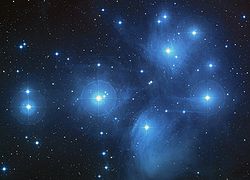
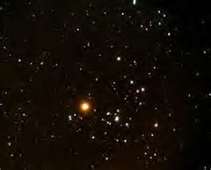

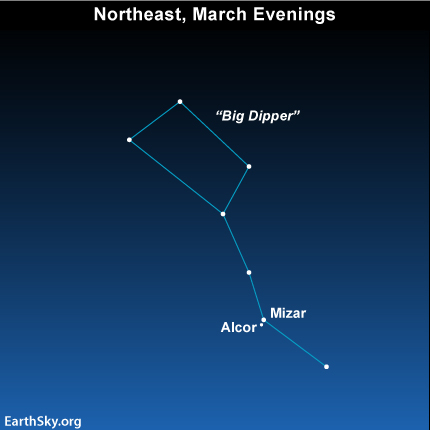


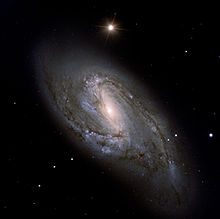

.jpg)
.jpg)

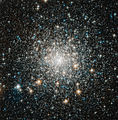

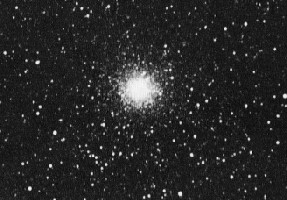



 Flag Writing
Flag Writing